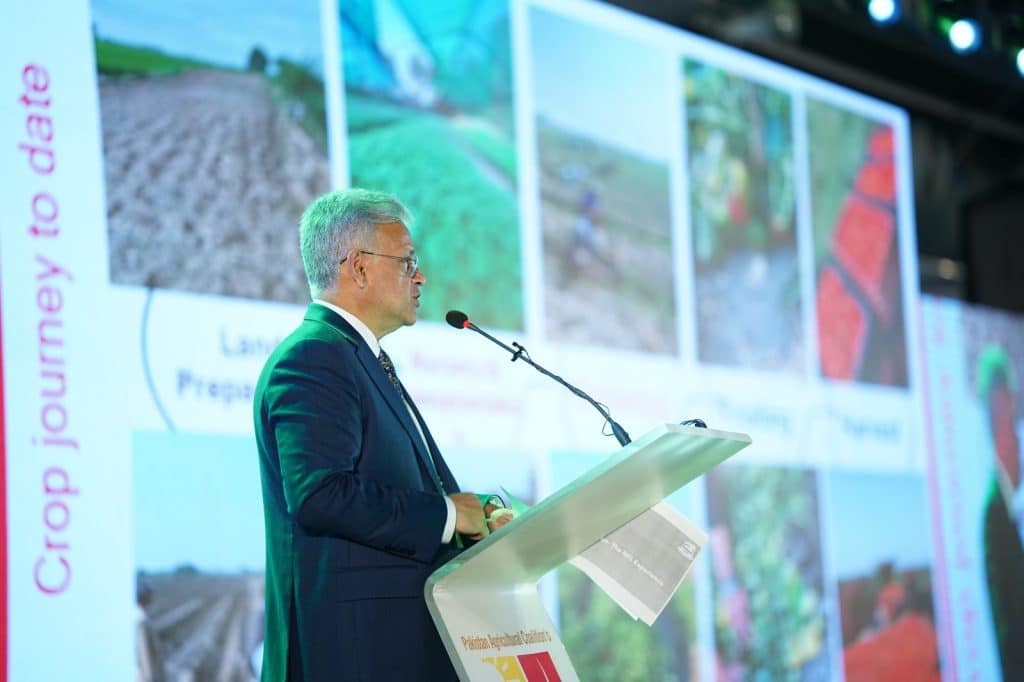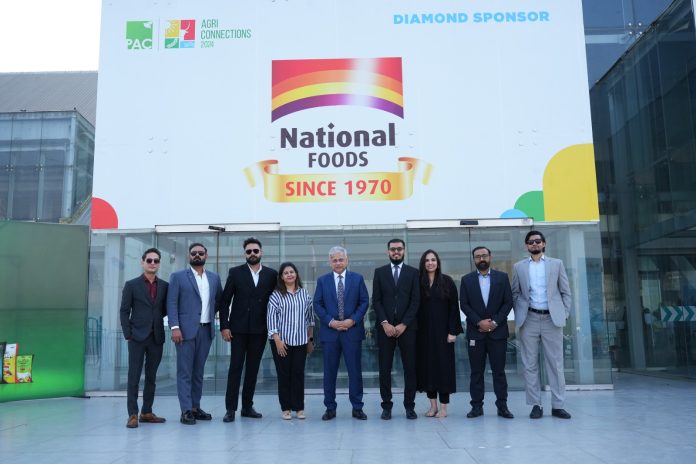Imagine a world where a global crisis doesn’t cripple your dinner table. For Pakistan, a nation deeply woven into the fabric of culinary delights, the COVID pandemic was a game changer in many aspects. It all began as a response to the pressing need to address global supply chain constraints, particularly in the food sector. One key ingredient, tomato paste, a seemingly ordinary staple, symbolized a larger challenge – dependence on imported food supplies.
Seeing this challenge as an opportunity to transform the nation’s food value chain, National Foods Limited, a Pakistani powerhouse, embarked on a remarkable journey – a journey not just for a single ingredient, but for the very soul of Pakistan’s agricultural landscape, one seed at a time.
Born from Crisis, Driven by Innovation: The Seed to Table Initiative
‘Seed to Table’ by National Foods is a transformative project redefining the country’s agricultural landscape. Pakistan currently imports nearly $10 million worth of tomato paste annually, highlighting the need for localization of this raw material. The initiative is more than just an initiative; it’s a commitment to fortify the tomato value chain, seizing import substitution opportunities, and reshaping the agricultural sector positively.
Through formal partnerships with progressive farm-managing companies, National Foods Limited set out to empower local farmers and strengthen the tomato value chain.
Empowering Farmers, Strengthening the Value Chain
National Foods understood that achieving this ambitious goal required collaboration. They partnered with farm management companies like Ibtida Ventures, Kevlaar, Indus Acres, and Vital Green. These partnerships not only provided access to 500 acres of land for tomato cultivation but also leveraged the expertise of these established players in optimizing farming practices.
Farmdar and FarmEvo brought expertise in farm management and drone services, crucial for large-scale, efficient farming. Salaam Takaful provided crop insurance, offering much-needed security to farmers. Syngenta’s partnership ensured access to high-quality seeds and valuable agronomy expertise.
Weather Walay provides invaluable weather advisory services, allowing informed decisions to optimize crop yields. This holistic approach to farming improved yields and ensured long-term sustainability.
Finally, Al Rahim, their trusted tomato processor, ensures that the fruits of their labor are transformed into high-quality tomato paste, ready to enrich tables nationwide.
These collaborations are crucial in addressing challenges such as the quality of seeds, water availability, and stakeholder identification in the farming sector. With such meaningful partnerships, they’re optimizing farming practices and ensuring sustainability.

Return on Initiatives – ROI
Since the project began in August 2023, National Foods Limited has adhered to its deadline. They have followed their program with unshakable determination, from cultivating seeds in September 2023 until transplantation in October 2023. The harvests started in February this year have yielded around 8,000 tons of premium-quality tomatoes.
“The revolutionary ‘Seed To Table’ project has already saved USD 2mn with a realized localization potential of around USD 10mn. It presents us with the opportunity to export in a USD 10bn+ market,” said Abrar Hasan, Global CEO of National Foods Limited (NFL).
“By taking control of the entire supply chain, we’ve ensured a consistent supply of high-quality fresh tomatoes directly to NFL’s production facilities. We are dedicated to building upon the success of the ‘Seed to Table’ project by replicating this model with other key ingredients like red chilies, further strengthening domestic agriculture, and reducing reliance on imports,” he added.
A Model for the Future: Beyond Tomato Paste
The success of the Seed to Table program extends beyond immediate benefits. It serves as a model for the future of Pakistan’s agriculture. National Foods’ commitment to innovation, collaboration, and sustainability has paved the way for a more resilient food supply chain.
Building on this success, National Foods is already exploring opportunities to cultivate red chilies, another crucial ingredient. This expansion signifies their long-term vision of strengthening Pakistan’s food security and promoting sustainable agricultural practices across various crops.
This initiative by National Foods Limited represents a strategic and impactful approach to addressing supply chain constraints. By localizing the production of essential raw materials, National Foods has ensured a stable supply chain, empowered local farmers, and contributed to the country’s food security efforts.


